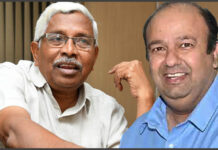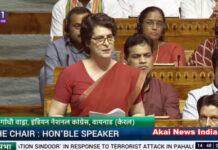High-Level Committee’s Formation Sparks Controversy

New Delhi, – In a scathing criticism of the Modi government’s recent move to form an eight-member high-level committee to examine the feasibility of ‘one nation, one election,’ Congress leader Mallikarjun Kharge accused the government of attempting to dismantle India’s federal structure. Kharge, supported by senior Congress leader Rahul Gandhi, asserted that the proposal posed a threat to the states’ autonomy and aimed at transforming democratic India into a dictatorship.
Kharge questioned the government’s rationale for establishing the committee without consulting national and state-level political parties and without the involvement of elected state governments. He emphasized that implementing such a significant change in the Indian electoral process required at least five amendments to the Constitution and substantial modifications to the Representation of the People Act, 1951.
He further raised concerns about the absence of a representative from the prestigious Election Commission of India on the committee and questioned the wisdom of undertaking such a major disruption in the electoral process unilaterally.
“The Modi government wants to slowly turn democratic India into a dictatorship. This gimmick of forming a committee on ‘one nation, one election’ is a subterfuge for dismantling the federal structure of India,” Kharge declared on X, formerly Twitter.
Kharge also challenged the idea of synchronized elections, suggesting that the cost-saving argument was shortsighted, considering the Election Commission’s expenditure on elections between 2014-19. He proposed alternative solutions, such as adjusting the moratorium length or relaxing restrictions on developmental activities during election seasons, which could garner wider consensus among political parties.
Furthermore, Kharge criticized the BJP for its alleged penchant for overthrowing elected governments, leading to a surge in by-elections since 2014 and rendering the anti-defection law ineffective.
On Saturday, Congress leader in Lok Sabha Adhir Ranjan Chowdhury — who was the lone opposition voice in the committee — declined to be a member of the panel, saying he cannot be part of the committee, the “terms of reference” of which “have been prepared in a manner to guarantee its conclusions.” He called the exercise an “eyewash.”
As the debate over ‘one nation, one election’ continues to intensify, political tensions remain high, with opposition leaders raising significant concerns about the potential implications for India’s federal structure and democratic principles.





